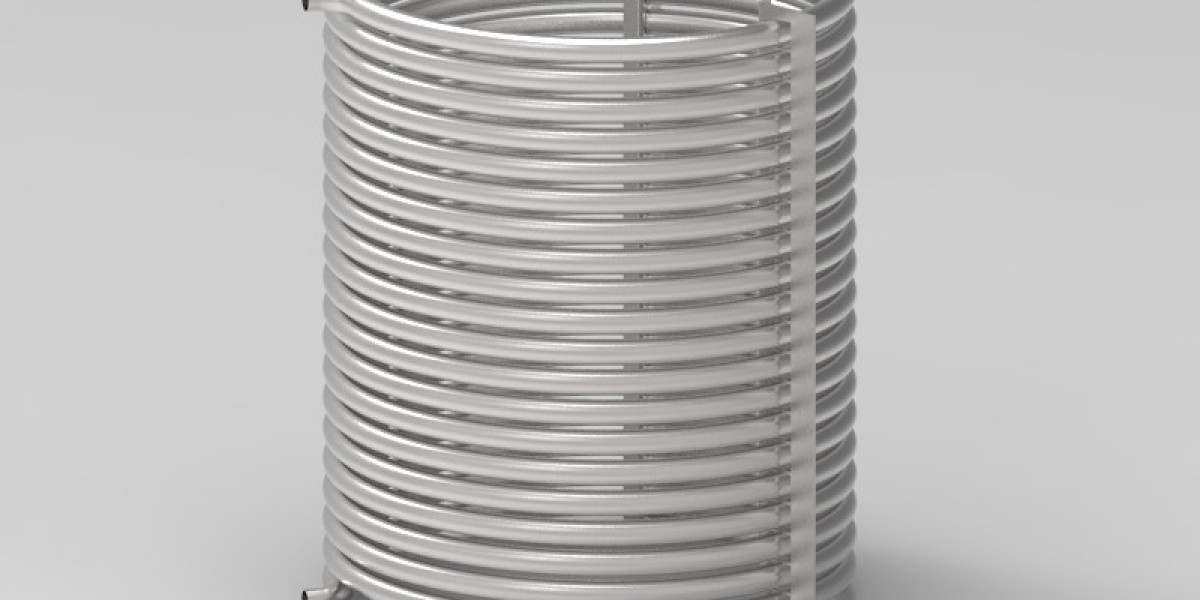These coils are an essential part of indirect water heating systems, often embedded within boilers to provide a reliable hot water supply without the need for a separate water heater.
Understanding how a hot water coil functions — and when it may need maintenance or replacement — can help homeowners and facility managers keep their systems operating smoothly while maximizing efficiency.
What Is a Hot Water Coil in a Boiler?
A hot water coil is a heat exchanger, typically made of copper tubing, that sits inside the boiler’s main water jacket. When the boiler heats water for the central heating system, the hot water coil uses that heat to warm up domestic water (used for taps, showers, and appliances).
This process is known as indirect heating. Instead of using a separate heating element or burner for domestic hot water, the coil transfers heat from the boiler’s circulating hot water to the household water flowing through the coil.
How It Works: Step-by-Step
Boiler Heats Water: The boiler heats water and circulates it through the system.
Coil Transfers Heat: Cold domestic water enters the coil. As it passes through, heat from the surrounding boiler water warms it up.
Hot Water Delivered: The now-heated water exits the coil and is delivered to faucets and appliances.
This design allows a single appliance (the boiler) to serve both space heating and hot water needs — especially in colder climates where boilers run frequently.
Common Applications
Residential homes with hydronic (water-based) heating systems
Multi-family buildings where space and energy efficiency are important
Older boiler setups that use tankless or internal coil water heaters
Commercial buildings that require reliable and high-volume hot water
Benefits of Hot Water Coils
1. Energy Efficiency
By using the boiler’s existing heat, hot water coils reduce the need for an additional heater, lowering energy consumption and utility costs.
2. Space Saving
No separate tank or heater means less mechanical equipment and more space in utility rooms or basements.
3. Reliable Hot Water Supply
As long as the boiler is running, the system can deliver continuous hot water, especially during heating seasons.
4. Lower Installation Cost
In systems where a boiler is already installed, adding or replacing a coil is often more cost-effective than installing a new standalone water heater.
Maintenance and Signs of Trouble
Like any component in a heating system, hot water coils can degrade over time due to scale buildup, corrosion, or internal leaks.
Common Signs It’s Time to Inspect or Replace Your Coil:
Reduced hot water output
Fluctuating water temperatures
Unusual noises from the boiler
Leaks near the coil housing
Slow water flow from hot water taps
Regular flushing and descaling can extend the life of the coil, especially in areas with hard water. In older systems, however, it may become more cost-effective to replace the coil entirely.
Replacing a Hot Water Coil
If your coil is beyond repair, replacement involves:
Draining the boiler
Removing the old coil unit
Installing a new, compatible coil
Refilling and repressurizing the system
Testing for leaks and functionality
This job is best handled by a licensed HVAC technician, especially in pressurized systems.
Choosing the Right Coil
When selecting a new hot water coil, consider:
Compatibility with your boiler make and model
Material quality (copper is common for heat transfer and durability)
Coil capacity (measured in gallons per minute or BTUs)
Ease of maintenance and access
Some modern coils are designed to resist scaling or come with integrated thermostatic controls for better performance.
A hot water coil for a boiler is a smart, space-saving solution for households looking to maximize their boiler’s functionality. It provides continuous, energy-efficient hot water while streamlining your mechanical systems.
Whether you’re maintaining an existing system or planning a new boiler installation, understanding how hot water coils work — and recognizing when they need attention — can help you maintain comfort, efficiency, and cost control throughout the year. Always consult a qualified heating professional to ensure the system is running at its best.








